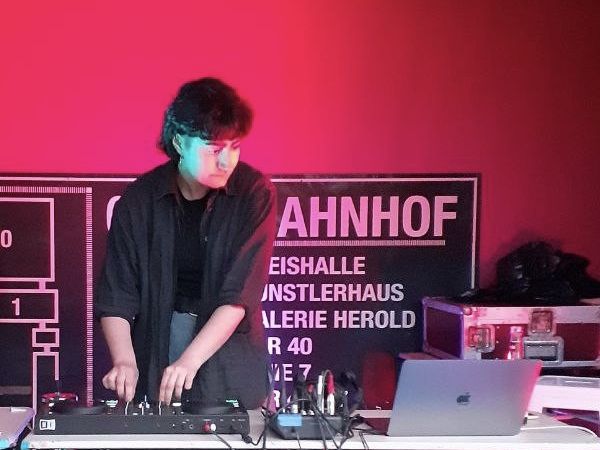DAAD Prize for Paria Moraghebi

From Tehran to Germany, very young, in her pocket only a school leaving qualification that is not recognised here. That was five years ago. Today, Paria Moraghebi is enrolled in the Cultural Studies and Art-Media-Aesthetic Education degree programmes at the University of Bremen, but is first and foremost interested in film – curating films for the queerfilm festival in Bremen, showing films from Tehran and about Tehran, the city she still loves – and always has her smile with her, which she also brought with her from Tehran. She has now received the DAAD prize for outstanding achievements by foreign students, which comes with 1,000 euros.
She was nominated for the award by her university lecturer Tobias Dietrich because “in an impressive way, she manages to combine her personal interests with her political and social commitment and the content of her studies, and all that with a consistently good-humoured lightness." Her interests run in the direction of film. "I got that from my father, an engineer but a film nerd. I used to watch films endlessly with him,” says Moraghebi. Her mother is an actress. In Tehran, Moraghebi attended a secondary school specialising in the arts, completed her A-levels in art and has written for various Iranian culture and music magazines. Here, too, she stays connected to writing and views film from an academic perspective, which is precisely why she came to the University of Bremen, because she seeks understanding and theory for how she sees. On the screen and in life. "Cultural studies also provide me with an examination of the country I come from," she says, adding: "You can't be apolitical in Iran.” Moraghebi is not apolitical here, either. In Bremen's Steintor quarter she is active in Kultur im Bunker, a cultural and socio-political project. Up in the bunker, she lives in a shared flat with five others, while down in the basement the association organises concerts, film evenings and other events. This is also where she has shown films from Iran, produced by filmmakers who, despite the most difficult conditions in their country, are consistently among the best in the world. "It's similar in the music scene," reports Moraghebi. “There's a big scene for new electronic music in Iran, so significant that just in Germany alone it’s now celebrated with two annual festivals, in Cologne and Berlin." And somehow this Iranian student in Bremen, with her commitment and her smile, also stands for the many intrepid and creative artists in her home country.

